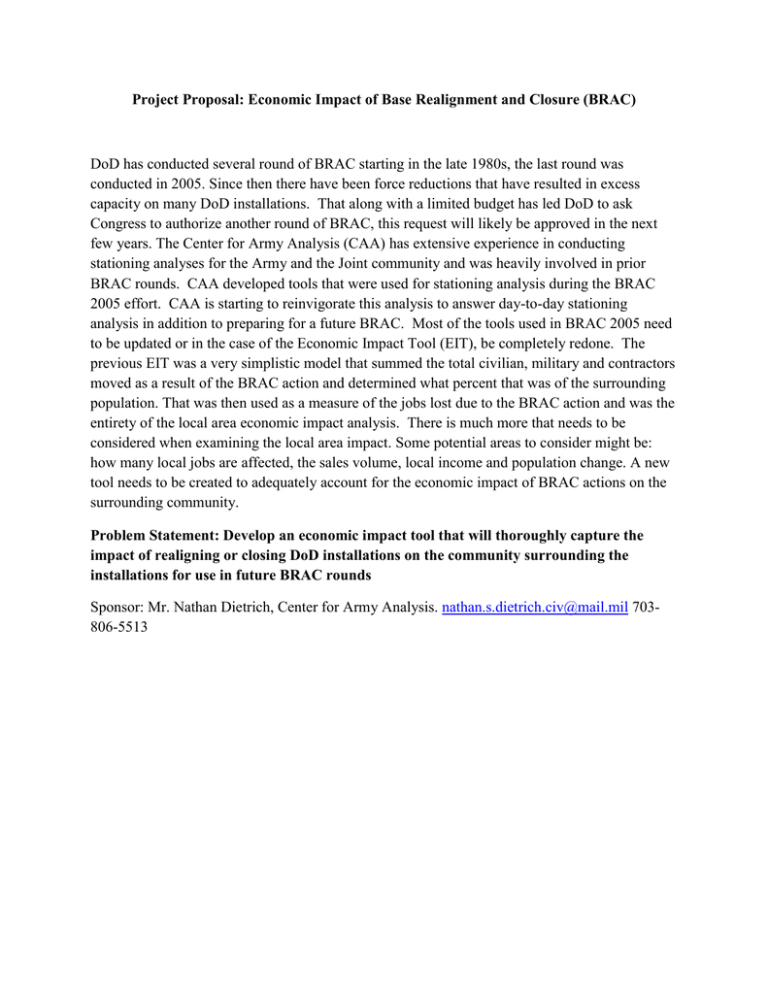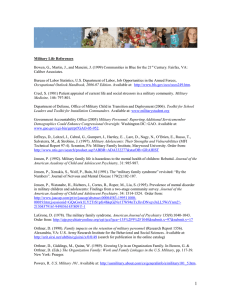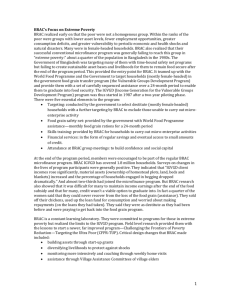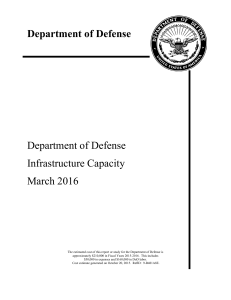Problem Statement.docx
advertisement

Project Proposal: Economic Impact of Base Realignment and Closure (BRAC) DoD has conducted several round of BRAC starting in the late 1980s, the last round was conducted in 2005. Since then there have been force reductions that have resulted in excess capacity on many DoD installations. That along with a limited budget has led DoD to ask Congress to authorize another round of BRAC, this request will likely be approved in the next few years. The Center for Army Analysis (CAA) has extensive experience in conducting stationing analyses for the Army and the Joint community and was heavily involved in prior BRAC rounds. CAA developed tools that were used for stationing analysis during the BRAC 2005 effort. CAA is starting to reinvigorate this analysis to answer day-to-day stationing analysis in addition to preparing for a future BRAC. Most of the tools used in BRAC 2005 need to be updated or in the case of the Economic Impact Tool (EIT), be completely redone. The previous EIT was a very simplistic model that summed the total civilian, military and contractors moved as a result of the BRAC action and determined what percent that was of the surrounding population. That was then used as a measure of the jobs lost due to the BRAC action and was the entirety of the local area economic impact analysis. There is much more that needs to be considered when examining the local area impact. Some potential areas to consider might be: how many local jobs are affected, the sales volume, local income and population change. A new tool needs to be created to adequately account for the economic impact of BRAC actions on the surrounding community. Problem Statement: Develop an economic impact tool that will thoroughly capture the impact of realigning or closing DoD installations on the community surrounding the installations for use in future BRAC rounds Sponsor: Mr. Nathan Dietrich, Center for Army Analysis. nathan.s.dietrich.civ@mail.mil 703806-5513






